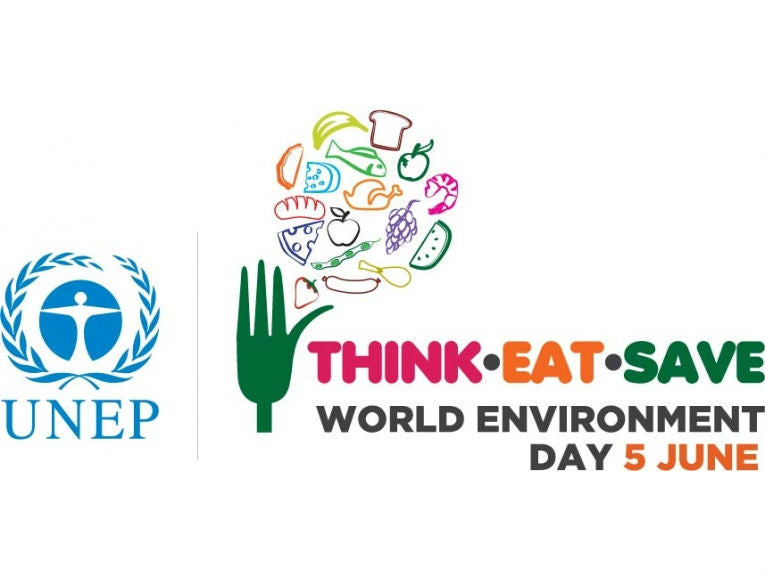With Mongolia hosting this year's World Environment Day, their set theme is a food carbon-footprint topic called Think. Eat. Save! The WED was established after an inter-governmental conference in Stockholm in 1972. In 1973, with the first WED, the "greens" and others were enthusiastic but we had big problems.
Strange, that we still have those problems after all this time. We now waste so much food, that's it is estimated to weigh 1.3 billion tons. That amount could feed the 1 in 7 children who go to bed hungry every day and help prevent their frequent death from starvation.
Think.Eat.Save is empowering everybody in the sense that it informs you about all the water wasted in producing food that goes to waste, all of the methane that animals produce in creating beef and the carbon dioxide given off to create the energy needed to produce the finished meat. Food production globally occupies 25% of all the land that we live on, using 70% of our fresh water. The greenhouse gases from all of this food total 30%. Most land-use change and loss of biodiversity is caused by food production.
So what should we do to avid all of this waste of pristine resources? Informed decision-making is more difficult than it was in 1978. Limiting some emissions now can mean buying local produce to avoid flights from distant regions. Organic food, too, avoids the expense, both environmentally and financially of chemicals used in many food products.
Last year, and in previous years, forest and biodiversity were themed. Brazil's Green Economy theme in 2012 used one of the fastest growth rates among nations to showcase how people and development could go hand-in-hand with their environment. Highlights from some early years included Stockholm's 1991 Climate Change theme and the need for partnership and several desertification themed years such as that in Algiers in 2006
This year, UNEP, FAO and Messe DÃ ¼sseldorf aim o save food ad contribute to the Zero Hunger Challenge that ban Ki-Moon launched at the Rio+20 Conference last year.. Literally, they want, "to add its authority and voice to these efforts in order to galvanize widespread global, regional and national actions and catalyze more sectors of society to be aware of and to act on the growing scandal of food waste."
First steps involve pest control, proper storage and the Mongolians ideas on preservation, preserved for us through time from ancient habits worldwide. More developed countries must concentrate of their horrific wastage of food because it is the wrong shape or some other ridiculous reason. Smallholders in every country need to address the increase in productivity needed to solve supply problems locally.
Beyond agriculture, many Mongolian gold miners are concentrating on the health within their mines rather than their immediate rewards. The healthy future achieved is more valuable than short term monetary gain. Their President is very supportive in his statement, "Our blue planet is only one for all of us. Yet, our home Earth is visibly losing its vitality and pristineness due to the reckless policies and ruinous acts of its children, the human beings. Its resources are being exhausted and the safe livelihood of the humankind is gravely endangered." Obviously this is not a single day campaign.
Those of us who don't go to Mongolia need to buy our local produce, even if it has an odd shape, preserve food instead of wasting it and use cloth reusable bags. Growing you own food is a desire within many of us, so ways to efficiently produce attractive vegetables will be spread around on World Environment Day 2013 (WED).
Children can certainly improve with their personal consumption of leftovers, although I'd hate to be around in some households with spoilt children's opinionated comment. The obese and the obsessive dieters among us also have something important to offer on this special day, particularly for their own healthy future!










